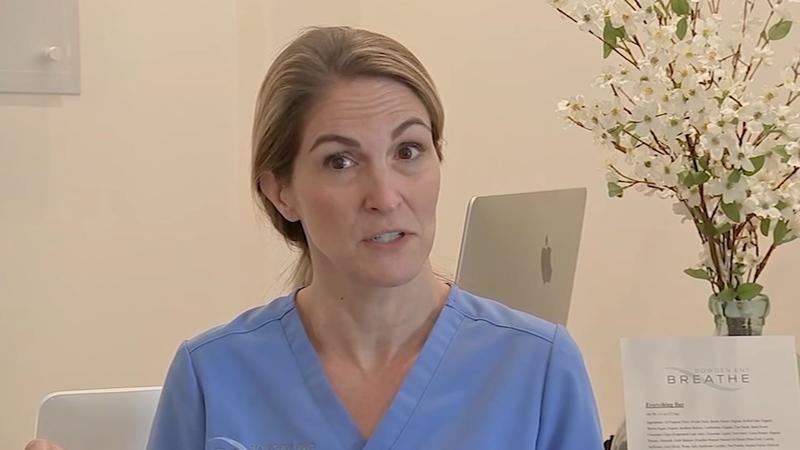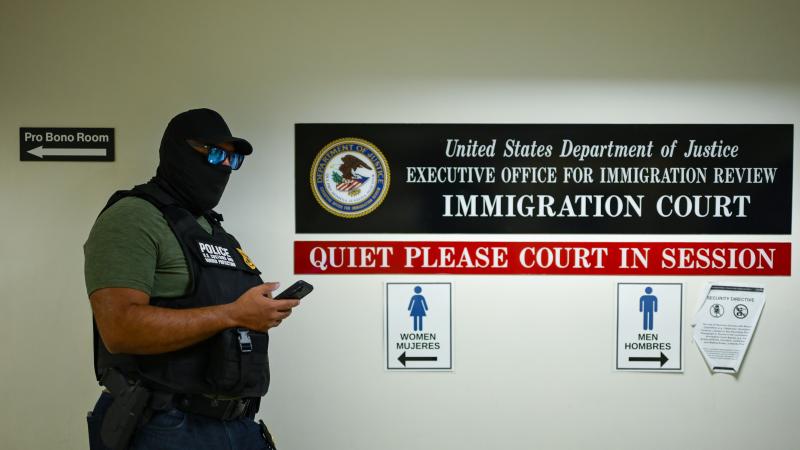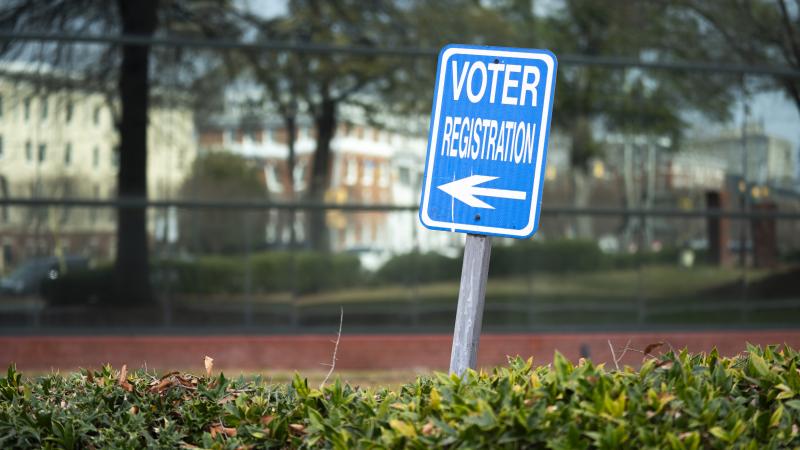Federally funded researchers bury results on COVID vaccine effect on liver, kidney risks in youth
NIH-funded study of "long COVID" and reinfection hides findings on risks stratified by vaccination status deep in a supplement, contradicting researchers' conclusions and media narrative that vaccines are the answer.
The Trump administration's Centers for Disease Control and Prevention put the nail in the coffin of one-size-fits-all COVID-19 vaccine recommendations Monday, updating its children and adult vaccination schedules to encourage physicians, nurses and pharmacists to discuss harms and benefits from vaccination specific to each patient before they get jabbed.
Parents may get an incomplete picture from healthcare providers who don't look too closely at federally funded research that promotes indiscriminate COVID jabs for kids, though.
A research consortium buried a startling finding in its peer-reviewed study on biologically elusive "long COVID" and reinfection in patients under 21, published in a prestigious U.K. journal: Vaccinated kids who are reinfected have a higher risk of several long-term problems than unvaccinated kids, though it's the opposite for some other conditions.
It's far from the first time researchers have buried findings that are inconvenient to the COVID establishment narrative.
In a 2024 study in an American Heart Association journal, on the risk of long-term heart damage from COVID infection, Cleveland Clinic researchers used supplementary materials to disclose their finding that the risk of "Major Adverse Cardiac Events" among those who weren't hospitalized did not differ meaningfully from non-infected controls.
"Informed consent is back," acting CDC director and deputy secretary of Health and Human Services Jim O'Neill said Monday, on applying "individual-based decision-making" to the COVID vaccine schedule in line with its Advisory Committee on Immunization Practices' recent recommendations.
The agency's "blanket recommendation for perpetual" COVID boosters in 2022 "deterred health care providers from talking about the risks and benefits of vaccination for the individual patient or parent," he said, emphasizing booster uptake has plunged to 23% of adults from 85% for the original COVID vaccines from President Trump's Operation Warp Speed.
The change "means that the clinical decision to vaccinate should be based on patient characteristics that, unlike age, are difficult to incorporate in recommendations, including risk factors for the underlying disease as well as the characteristics of the vaccine itself and the best available evidence of who may benefit from vaccination," the CDC said.
Revealed 39 pages into a 54-page supplement
Whether SARS-CoV-2 is solely or even primarily responsible for symptoms deemed long COVID remains disputed in the scientific literature, with Yale research suggesting vaccination itself is responsible in some cases and an international research team correlating the symptoms in young people with lack of exercise and "loneliness."
Published Sept. 30 in The Lancet Infectious Diseases, the long COVID and reinfection paper uncritically accepts COVID as the cause of "post-acute sequelae of SARS-CoV-2 infection," analyzing more than 400,000 patients across 40 pediatric hospitals as part of the National Institutes of Health-funded RECOVER initiative.
On behalf of the RECOVER Consortium, the two dozen authors studied how the vaccine-busting Omicron variant, which hypercharged the breakthrough infections first publicly acknowledged by the CDC in summer 2021, affected PASC risks.
They vaguely define PASC as "new or ongoing health problems persisting at least 4 weeks after infection," which span "a wide range of symptoms and syndromes affecting multiple organ systems" but present as "more heterogeneous and non-specific symptoms" in children, such as fatigue, mood changes, dizziness and abdominal pain.
"Children and adolescents face a significantly higher risk of various PASC outcomes after reinfection with SARS-CoV-2," the authors conclude in the paper.
They waited until 39 pages into a 54-page supplement, separate from the paper, to disclose the higher risk for vaccinated patients under 21 who are reinfected, for conditions such as "acute kidney injury," abdominal pain, "abnormal liver enzyme" and even long COVID itself.
Those are listed in a table, "Number of events and incidence rate per million persons per 6 months of patients in first and second infection episodes," stratified by vaccination status. (About three-quarters of the study population was unvaccinated, given that children were authorized well after adults.)
The incidence rate for PASC among the vaccinated was 1,145 and 2,901 for first and second infection, respectively, and among the unvaccinated, 764 and 1,690. For acute kidney injury, 795 and 1,429 versus 497 and 1,121; abnormal liver enzyme, 1,858 and 2,748 versus 879 and 1,282; and abdominal pain, 22,492 and 31,065 versus 15,670 and 21,135.
Other divergences by vaccination status were close calls, such as "cardiovascular signs and symptoms": 5,624 and 6,163 for vaccinated versus 5,085 and 5,627 for unvaccinated. Arrhythmia was more common on the first infection for the vaccinated than for the unvaccinated, but the opposite on the second infection, for example.
Calculates incidence rate for myocarditis only in unvaccinated
The New York Times didn't mention the calculated differences by vaccination status in its coverage of the study, and neither did the University of Pennsylvania's medical school, several of whose researchers participated in the analysis.
The study authors, Penn Medicine and "medical experts" invoked by the Times, all said the results – that children and adolescents "face a significantly higher risk" of long COVID after reinfection – support indiscriminate vaccination against COVID.
They "highlight the need to promote vaccination in younger populations and support ongoing research to better understand PASC, identify high-risk subgroups, and improve prevention and care strategies," the study concludes.
"More vaccines should lead to fewer infections, which should lead to less long COVID," co-author Ravi Jhaveri, head of Pediatric Infectious Diseases at Lurie Children's Hospital of Chicago, told Penn Medicine. (The CDC had documented breakthrough infections a month after emergency use authorization for the first COVID vaccines.)
Alexandra Yonts, director of the Pediatric Post Covid Program Clinic at Children’s National Hospital, emphasized to the Times, in its paraphrase, "the most severe symptoms, like myocarditis, mostly occurred in young people who had not been vaccinated."
The table shows fewer than six incidents of myocarditis, a type of heart inflammation, among vaccinated patients, so the researchers didn't try to calculate an incidence rate per million. The absolute number of myocarditis incidents for first and second infections among unvaccinated was nine and seven, respectively, for an estimated rate of roughly 50 and 129.
Former Times drug industry reporter Alex Berenson flagged the buried results in his newsletter Friday, emphasizing the "association does not prove the Covid shots caused post-infection kidney injury or other problems" because the vaccinated and unvaccinated kids may have been otherwise different in ways not described by the authors.
"But it adds to years of evidence that mRNA Covid shots are useless, if not dangerous, for kids," Berenson said, emphasizing the kidney and liver findings. (Non-mRNA vaccines weren't authorized for kids during the study period, January 2022 to October 2023.)
"Overall, jabbed kids were about 10 percent more likely to be diagnosed with a wide range of conditions, including less serious ones, after Covid infection or reinfection," Berenson said.
It's telling that the authors "parsed their data in countless ways" yet omitted "any direct analysis of vaccinated and unvaccinated kids," he said. The establishment spin shows "the scientific establishment simply will NOT follow up on signals of potential mRNA risk."
The study's corresponding author, Penn Computing, Inference and Learning lab director Yong Chen, didn't respond to Just the News queries on why the RECOVER Consortium authors appeared to bury the distinctions by vaccination status deep in the supplement, what affect that might have on future NIH funding, and what role if any The Lancet played.
The Trump administration this spring accelerated a planned policy change to immediately make public NIH-funded research results, though it doesn't specify whether or how researchers could be penalized for withholding or obscuring results at odds with their conclusions.
The U.K.-based Lancet didn't answer queries on whether the publisher or peer reviewers required the burial, and neither did Times reporter Pam Belluci, whose beat includes long COVID, when asked whether she reviewed the supplement for her story, which claimed unnamed studies show "vaccines significantly reduce long Covid risk."
The Facts Inside Our Reporter's Notebook
Videos
Links
- updating its children and adult vaccination schedules
- Cleveland Clinic researchers used supplementary materials to disclose
- Yale research suggesting vaccination itself is responsible in some cases
- lack of exercise and "loneliness
- The Lancet Infectious Diseases
- 54-page supplement
- children were authorized well after adults
- The New York Times
- University of Pennsylvania's medical school
- CDC had documented breakthrough infections a month after
- Alex Berenson flagged the buried results
- accelerated a planned policy change














